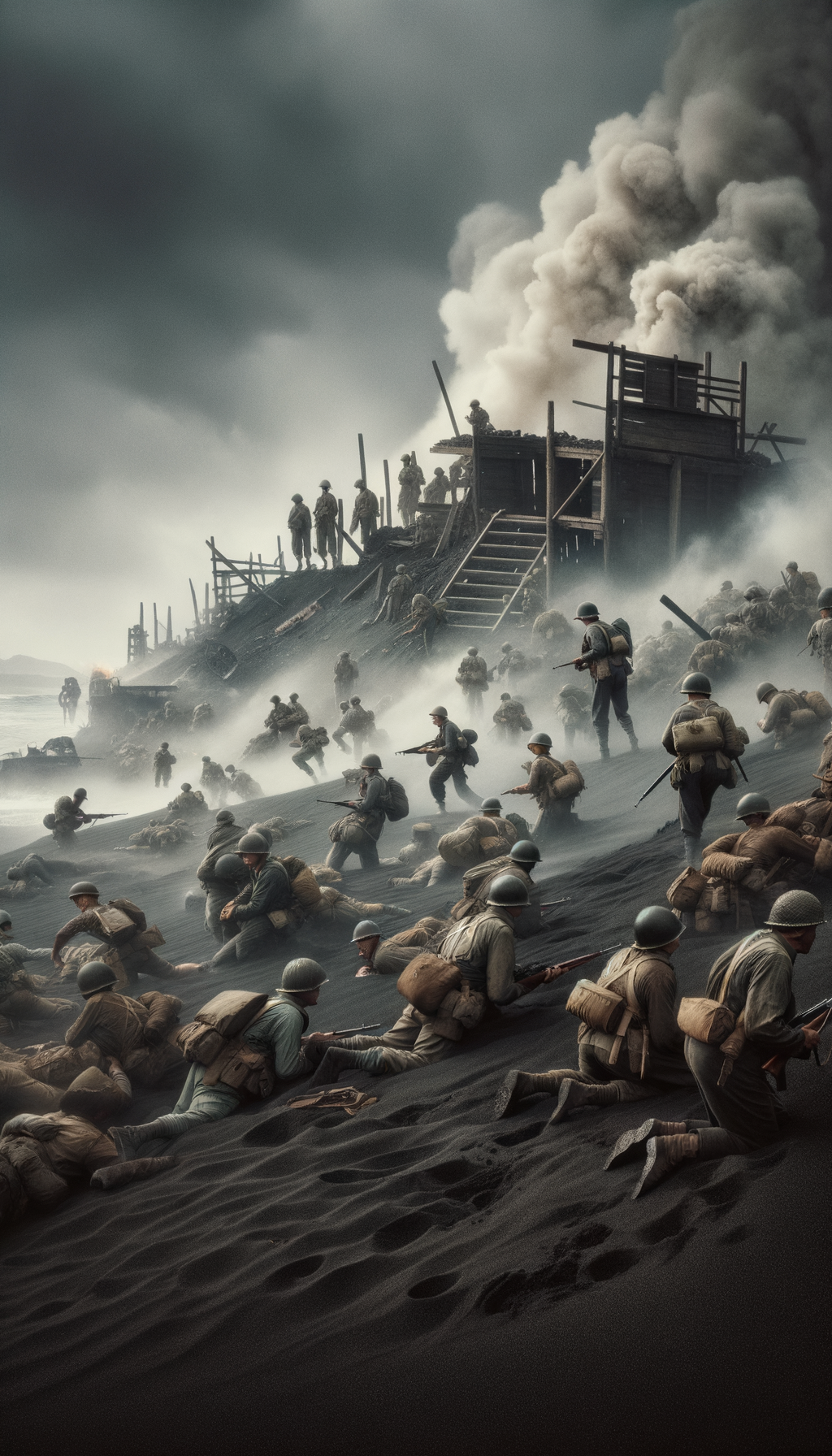Japan – The Last Stand on Iwo Jima – March 26, 1945
TLDR;
- Event: The Battle of Iwo Jima concluded on March 26, 1945, after over a month of intense fighting between U.S. forces and Japanese defenders.
- Significance: The battle was crucial for the Allies, providing a strategic base for air operations against Japan in World War II.
- Impact: The U.S. suffered around 6,821 casualties, while approximately 18,000 Japanese soldiers died, with some resistance continuing after the official end of the battle.
- Legacy: Iwo Jima’s capture was a key step towards the end of the war, symbolized by the iconic flag-raising on Mount Suribachi, but it came at a great human cost.
–
Story
The air was thick with smoke and the acrid smell of gunpowder as the final shots echoed across the black sands of Iwo Jima. The island, once a fortress of Japanese resistance, now lay in the hands of the Allies. It was March 26, 1945, and the brutal battle that had raged for over a month had finally come to an end.

The Battle of Iwo Jima was a pivotal moment in the Pacific theater of World War II. The island, a mere speck in the vast ocean, held strategic importance far beyond its size. Capturing Iwo Jima meant securing a base for air operations against Japan, a stepping stone for the final push towards victory.
The battle began on February 19, 1945, with a massive amphibious assault. The Japanese defenders, entrenched in a labyrinth of tunnels and bunkers, fought with tenacity and desperation. For the U.S. Marines, every inch of progress was paid for in blood. The iconic image of the flag raising on Mount Suribachi became a symbol of hope and sacrifice.
As the days turned into weeks, the relentless American advance slowly wore down the Japanese defenses. By March 26, the island was declared secure, but at a staggering cost. Approximately 6,821 American lives were lost, and around 18,000 Japanese soldiers perished, many choosing death over surrender. However, some Japanese soldiers continued to hold out in isolated pockets for weeks after this date, meaning the island was not completely free of resistance until later.
The capture of Iwo Jima provided the Allies with a critical base for launching air raids on the Japanese mainland, bringing the end of the war one step closer. Yet, the victory was bittersweet, a reminder of the immense human cost of war.
The echoes of Iwo Jima still resonate today, a testament to courage and sacrifice in the face of overwhelming odds.
–
| Would a different strategy have changed the outcome of the Battle of Iwo Jima? |